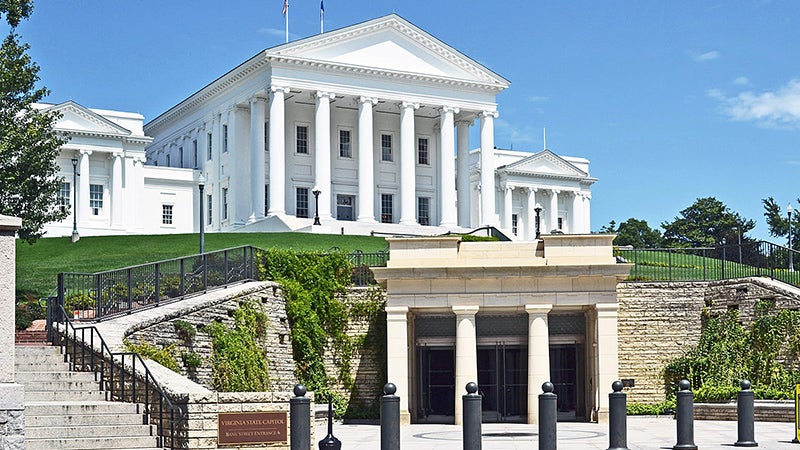Anti-trans bills cause harm, fear even if they fail, advocates say
Published 5:37 pm Friday, February 17, 2023
|
Getting your Trinity Audio player ready...
|
By Gabriela de Camargo Gonçalves
Capital News Service
Anti-transgender legislation is on the rise nationwide and in Virginia. Even if proposed legislation fails, the vitriol that makes headlines affects LGBTQ communities, advocates say.
Legislation considered anti trans usually falls under efforts that introduce discrimination or fail to create inclusive and affirming protections for people who are transgender.
Del. Danica Roem, D-Prince William, posted a Twitter thread ahead of the session about the concern surrounding the proposed anti-trans bills in the General Assembly. She has no doubt they will fail to pass the Democratic majority in the Senate, she stated in the tweet.
Lawmakers introduced over 10 pieces of anti-trans legislation this session, according to Equality Virginia, an organization that lobbies on behalf of Virginia’s LGBTQ citizens.
Legislators proposed measures that would prohibit trans athletes from playing on the school sports teams that align with their gender identity; require “forced outing” of a minor whose selected gender did not align with biological sex; and ban gender-affirming healthcare for transgender and nonbinary youth.
The Senate bills opposed by Equality Virginia failed to advance.
Some House bills opposed by LGBTQ advocates advanced to the Senate:
— HB 1387: Designation of sports based on biological sex advanced to the Senate on a 51-47 vote.
— HB 1444: Voter identification photo required advanced to the Senate on a 52-48 vote.
— HB 2432, or “Sage’s Law”: Parental notification if a student self-identifies as a gender different from their biological sex advanced to the Senate on a 50-48 vote.
Trans youth visited the state Capitol to testify and “defend their own civil rights,” Roem said.
“The mere presence of these bills is detrimental to trans kids and LGBTQ kids in general,” Roem said. “It causes a level of fear, and it emboldens the very people who are trying to discriminate against them.”
Legislators would not file these anti-trans bills if they thought it would hurt them politically, Roem said.
All 140 seats, 40 Senate and 100 House, are up for election in November. Many of the bills are introduced without a chance of passing the Democratic-majority Senate and serve more as demonstrating a lawmaker’s conservatism ahead of the election, Roem said.
“So when you have a proliferation of legislators who come here because they were validated for picking on trans kids in their campaign platforms, then of course the policy that they put forward, legislation that they put forward, is going to reflect what was in their platform,” Roem said.
Roem, a former reporter, stated in her tweet that journalists have a responsibility to include context when covering the General Assembly, to help the audience “understand the larger picture of what’s happening.”
Stephen Farnsworth, director of the University of Mary Washington Center for Leadership and Media Studies and a political science professor, said there are a few questions to ask for balanced legislative coverage.
Reporters should ask questions, Farnsworth said, such as: What are the bill’s prospects; is it likely to get through the House or the Senate; and is the governor likely to sign it?
“What you see in terms of a divided government is that not a lot is going to make it through that process,” Farnsworth said. “There’s not a lot of opportunity for bipartisan lawmaking.”
The division in the General Assembly, with a Republican majority in the House and a Democratic majority in the Senate, results in gridlock, or the inability to function normally, according to Farnsworth.
The student-led Pride Liberation Project hopes to “become a force for progressive change,” and has organized school walkouts in response to the governor’s proposed model policies. The group also has mobilized people to get involved with state advocacy.
Pride Liberation organizes and shares resources across social platforms, including “know your rights” information on its website. The organization stated on social media that they had a “wild idea” that lawmakers should consider “not being hateful” and addressing “real issues like gun violence, the climate emergency, and the mental health crisis.”
Anti-trans legislation stems from not understanding the difference between gender and sexuality, according to Karen Thomas, development coordinator for the LGBT Life Center in Norfolk.
“We have several people who are just concerned because anti-trans legislation is really a threat to people’s ability to have a wonderful life,” Thomas said.
The organization has teamed up with other LGBTQ advocates to lobby legislators at the General Assembly on Feb. 14, according to Thomas.
Capital News Service is a program of Virginia Commonwealth University’s Robertson School of Media and Culture. Students in the program provide state government coverage for a variety of media outlets in Virginia.







